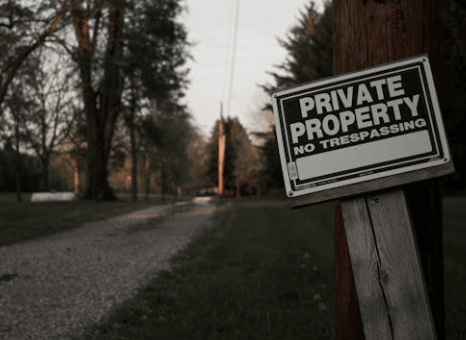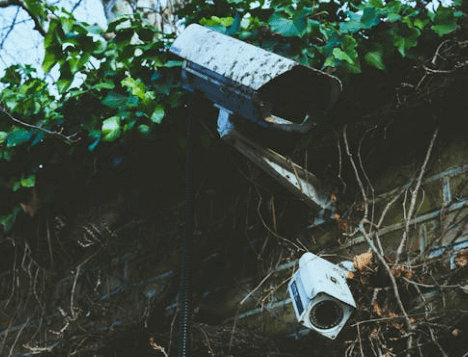Welcome to our latest blog post, “Strategies to Keep Trespassers Off Your Land in Florida.” In this guide, we’ll share effective methods to help you protect your property and maintain your privacy. Whether dealing with unauthorized visitors or wishing to safeguard your land against potential trespassers, this article offers actionable tips and practical strategies to keep trespassers off your land. Ensuring the security of your property in Florida is paramount, and we’re here to help you achieve that peace of mind.
Steve Daria and Joleigh, renowned real estate investors in Florida, share a common challenge: keeping trespassers off their properties. They implement advanced surveillance systems and clear boundary markers as effective deterrents. Additionally, engaging with the local community helps foster relationships that further protect their investments.
Understanding Trespassing Laws in Florida
Before exploring how to keep trespassers off your land, it’s essential to acquaint yourself with the laws in Florida.
The state recognizes both criminal and civil trespassing, with the difference mainly lying in the violator’s intention.
What Constitutes Trespassing?
Trespassing is generally defined as going inside or remaining on someone else’s property without permission in Florida. The person entering must be informed that they do not have permission to be on the property.
There could be some exceptions, such as when someone enters due to an emergency, believes they are entering public property, or is under the age of six and does so unknowingly.
How Can You Notify Trespassers?
One of the most straightforward ways to inform potential violators and keep trespassers off your land is by posting signage that specifies no trespassing.
However, the details of how expansive or what type of signage can vary. Some questions you might have answer are:
- How visible does the signage need to be?
- How often should signs be placed?
- What happens if the signs are damaged or removed?

Establishing and Maintaining Boundaries
To protect your land, establish where it begins and ends. Clear boundaries can be physical, like fences and walls, or symbolic, like lines marked with paint or posts.
Survey Your Land
Hiring a professional land surveyor is the best way to determine your property lines accurately.
A survey will provide you with a map showing the exact boundaries, which can be used to guide you when establishing physical markers or signs.
Physical Barriers
Constructing a sturdy fence, wall, or gate can act as a significant deterrent to trespassers. Florida’s terrain and climate can present unique challenges, such as erosion from coastal exposure, flooding in low-lying areas, or maintaining structures in the humid, subtropical climate.
Digital Barriers
Innovations in technology have provided landowners with electronic options, including motion-activated cameras and even drones for surveillance.
These modern tools can alert you to any unauthorized activity on your land, allowing for prompt action to be taken.
Deploying Security Measures
Beyond physical and digital barriers, you can incorporate several proactive security measures to protect your property and keep trespassers off your land.
Lighting Solutions
A well-lit property can deter trespassers, making unauthorized access difficult without detection.
Solar-powered lighting is an excellent choice for Florida’s sunny weather, as it is both eco-friendly and cost-effective.
Alarm Systems
Installing an alarm system that notifies authorities during a security breach can add a layer of protection. Some systems can broadcast warnings, including loud sirens, to scare off and keep trespassers off your land.
Sensitive Areas Protection
For remote or vulnerable areas on your property, consider using motion sensors or hidden cameras that automatically trigger an alert if someone approaches.

Dogs and Livestock
Guard dogs or animals, such as cattle or sheep, if applicable for your property, can provide companionship and serve as natural security, alerting you to the presence of strangers.
Legal Recourse Against Trespassers
Should you discover individuals on your property without permission, there are legal measures you can take.
Contact Local Law Enforcement
Always report trespassing incidents to the local police department, especially if your safety is at risk. If possible, document the incident with photographic or video evidence.
Pursuing Civil Remedies
You may also seek financial damages through civil court for any harm done or resources used due to trespassing, such as damage to crops, land, or infrastructure.
Preparing for the Worst
Preparation is vital in the event of a confrontation with a trespasser. Knowing how to handle a trespasser while staying within the bounds of the law is crucial.
Communicating with Trespassers
Engaging with a trespasser directly can be dangerous and is often not recommended. Instead, use announcements over a loudspeaker or a camera system to warn them off your property.
Partnering with Neighbors
Strength in numbers applies to property defense as well. Establishing a neighborhood watch can help ensure you’re one of many looking out for trespassers.
Keeping Legal Documents in Order
It’s imperative to keep documents related to your property in order, including your land survey, property deeds, and documentation of any historical land use that can influence the right of way.
Training and Responsibility
If you have hired personnel or security, you must provide them with the proper training on dealing with potential trespassers.
Knowing How to Act
Your security team should be familiar with local laws, have clear protocols for dealing with trespassers, and minimize risks during confrontations.
Identifying Threats
Training should include scenarios for appropriately identifying and dealing with potential threats without resorting to violence.
Community Involvement and Advocacy
While most of your defense tactics are property-specific, engaging with local communities and authorities is essential.
Joining Community Forums
Participating in local community groups, online forums, and neighborhood associations can help build support and collaborative strategies for preventing trespassing.
Advocating for Policy Changes
If trespassing is a recurring issue in your area, consider advocating for policies or laws that provide more explicit guidelines and stricter penalties for offenders.
Continuous Evaluation and Improvement
Staying vigilant and regularly re-evaluating your property’s defenses can help ensure they remain effective.
Annual Property Assessments
Conduct an annual assessment of your land’s security measures, checking for damaged fences, faded signs, or non-functioning alarms.
Incorporating New Technologies
Look for new security technologies and consider how they may enhance your measures.
Updating Legal Knowledge
Laws can change, and understanding these changes can be critical in maintaining the legal integrity of your security practices.
Conclusion
Your property in Florida is a valuable asset, and protecting it from trespassers is not just about enjoying the privacy and security of your domain. It’s also about maintaining environmental integrity, preserving accommodations for wildlife, and promoting a respectful relationship with your neighbors. Accomplish the strategies outlined in this guide to defend your property effectively and enjoy it without unwanted visitors. Remember, preventing trespassing is not just a right but a responsibility that should be taken seriously and carefully executed.
